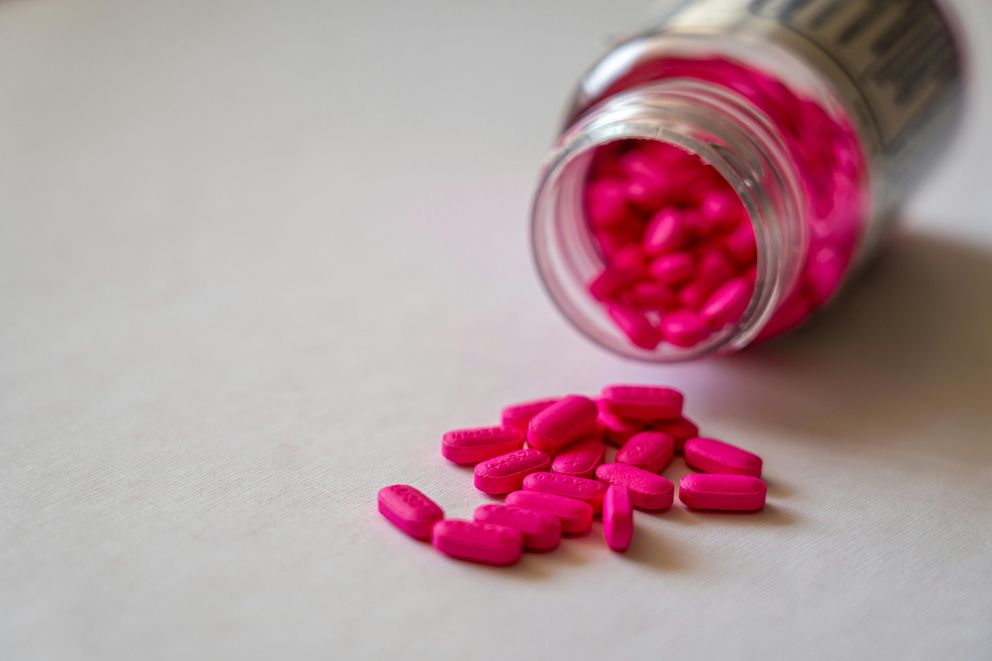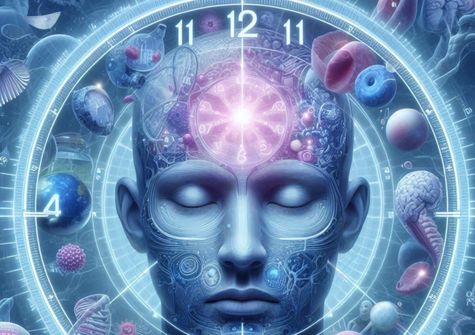
Do Painkillers Break Your Intermittent Fast?
Hey there, wellness warriors! Today we're diving into a question many of us have wondered about: do painkillers break a fast? Whether you're practicin...

If any of you out there practice intermittent fasting for health reasons, you might have wondered the same thing I have - do the medications we take mess with our fasting windows? This is a totally valid question, especially when it comes to mood stabilizers like lithium, valproic acid, lamotrigine and others that some of us are prescribed.
We’ve all heard about how medications can potentially interact with foods and affect absorption. A study found that up to 20% of medications can have their absorption affected by food intake. So it’s understandable to be curious if popping that daily pill is going to kick our bodies out of the fasted state. After all, we’re putting something other than water into our systems during the fasting period.
To dig into this, let’s first do a quick refresher on what intermittent fasting actually is for all of us. Fasting is when we go an extended period, usually ranging from 16-48 hours, without consuming any calories. During this time, our bodies enter a metabolic state called ketosis where they start burning stored fat for energy instead of glucose from food. Studies show that fasting can increase our metabolic rates by 3.6-14% depending on the fasting protocol we follow.
The benefits we often hear about are things like weight loss, reduced inflammation, improved insulin sensitivity, and even increased lifespan in some promising animal studies. It’s pretty cool stuff that has many of us trying out different fasting protocols!
One study found that a 16-week intermittent fasting program led to 3-8% weight loss for participants. Other research associates fasting with up to a 28% reduction in inflammation markers like C-reactive protein.
So where do mood stabilizers like lithium or lamotrigine fit into all this for those of us who take them? The good news is, they likely aren’t going to affect our fasted states or ketosis at all. Here’s why:
These medications are formulated to have little to no calories and carbs. We’re talking single digit calories per pill, if that. For example, a typical 300mg lithium carbonate pill only has around 0-2 calories according to drug data sheets. Compare that to a typical 75g glucose powder used to spike insulin during diet studies - those can have around 290 calories! Our morning multivitamins likely have more calories than our mood stabilizers, often containing around 25 calories per pill.
Secondly, these meds don’t contain any proteins or sugars that could potentially trigger an insulin response and knock us out of ketosis. Pharmacokinetic studies show that 95% of lithium doses are absorbed within 6-8 hours, entering the bloodstream without requiring digestion or our bodies doing any real metabolic heavy lifting. Similar absorption patterns are seen with other psychiatric medications like lamotrigine according to clinical data.

Of course, it’s always wise for each of us to double check with our doctors or pharmacists about any specific medication instructions regarding food intake. A small number of people (around 5%) may have issues absorbing lithium in a fasted state according to research published in the Pakistan Journal of Pharmaceutical Sciences. But in general, the scientific consensus is that medications like mood stabilizers are considered “fasting safe” when it comes to intermittent fasting protocols.
So we can all breathe a sigh of relief! We can stay consistent with our fasting schedules while still taking our prescribed mood stabilizing meds. Our hard-earned ketosis is safe.
And as always, let your doctor know if you start experiencing any new side effects from your medications once you incorporate intermittent fasting. While most people tolerate mood stabilizers just fine during fasting windows according to research, about 10% may experience increased side effects like nausea or dizziness that need monitoring.
I wish all of you the best of luck as you combine fasting with your health and wellness routines! Let me know if any other medication-related fasting questions come up that we should ask our doctors about. We’re all in this together on the journey to better health!
A: Intermittent fasting involves cycling between periods of fasting, typically ranging from 16-48 hours, and periods of eating on a recurring schedule. During the fasts, your body enters a metabolic state called ketosis where it burns stored fat for energy instead of glucose from food.
A: Commonly cited benefits include weight loss, reduced inflammation, improved insulin sensitivity, increased metabolic rate, and potentially increased lifespan based on some promising animal studies.
A: No, these psychiatric medications contain little to no calories or carbohydrates per pill. A typical 300mg lithium carbonate pill only has around 2 calories, while a standard multivitamin likely has more calories than your mood stabilizer medication.
A: No, mood stabilizer medications do not contain proteins or sugars that could trigger an insulin response and disrupt ketosis. They are absorbed into the bloodstream without requiring substantial digestion or metabolism by your body.
A: For most people, no - mood stabilizers are generally considered safe and compatible with intermittent fasting protocols. However, around 5% of people may have absorption issues with lithium during complete fasted states, so it’s wise to check with your doctor about your individual situation.
A: Be sure to stay well hydrated by drinking enough fluids like water (experts recommend 91-124 ounces per day when fasting). Also, watch for potential increased side effects from your medication like nausea or dizziness in around 10% of cases. Consult your doctor right away if you experience concerning new side effects after incorporating fasting.
A: For the majority of people, taking mood stabilizing medications like lithium or lamotrigine likely will not negatively affect or “break” intermittent fasting routines, metabolism, ketosis, or the anticipated benefits of fasting protocols. However, it’s still advisable to discuss combining fasting with your doctor to properly monitor your individualized response and absorption.

Hey there, wellness warriors! Today we're diving into a question many of us have wondered about: do painkillers break a fast? Whether you're practicin...

When it comes to fasting, timing is everything—literally. Aligning your eating patterns with your body’s circadian rhythm—your internal 24-hour clock—...

Intermittent fasting (IF) is a popular health strategy, known for its benefits like boosting metabolism, improving energy, and aiding in weight loss. ...

Addiction recovery is tough, and for many women, finding holistic tools to support the process is crucial. While therapy, medication, and support grou...

When we think of fasting, Ramadan and Lent come to mind, but there’s a rich history of fasting practices that have been part of spiritual and cultural...